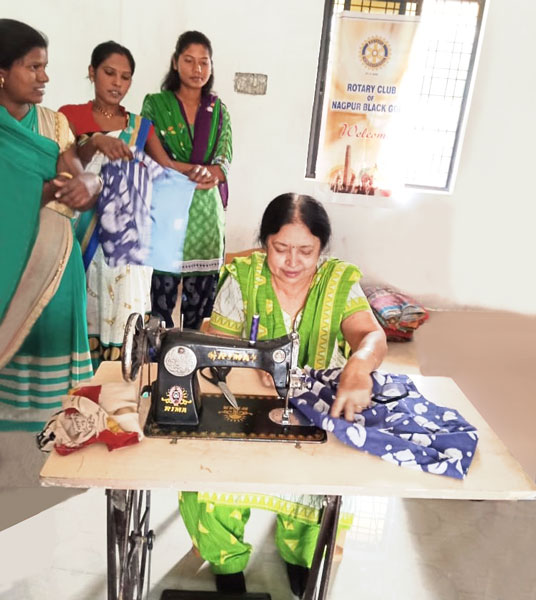The Rotarians of RC Nagpur Black Gold, RID 3030, have given a new lease of life to used saris, transforming them into colourful cloth bags. “In one of our club meetings when we discussed ways to help women in villages to earn regular income so that they can support their families, club secretary Sheela Tai came up with this idea and we went ahead with it,” said Anil Mahalle, president-elect of the club.

Nagajhari, a village 35km from Nagpur, was chosen for the pilot project and the gram panchayat helped in identifying 12 enterprising women who were ready to take on the job. To begin with, each club member brought in five saris, neatly washed and ironed. Three members donated their sewing machines to the villagers and Sheela taught the women to stitch bags from the saris. “Over 100 bags were ready in no time. We then took them to the local vendors in Nagpur and sold each bag for `10,” said Mahalle. The vendors were happy to replace plastic bags with these cloth bags and used them to pack vegetables, fruits and other groceries for their customers. “We have identified more buyers for the bags now. This valuable service has two sides — it provides women a means to earn a living, promotes an eco-friendly initiative and helps in discouraging use of polythene bags. More clubs can replicate this simple yet effective project in their communities,” he added.
The club plans to extend this economic empowerment project to more villages and is on the lookout for more sewing machines. An agreement has been signed recently with sewing machine manufacturer Singer to train underprivileged women in tailoring. “We have hired a hall and installed 14 sewing machines costing `1.27 lakh. Singer will provide staff to train the women and issue diploma certificates which will help them get employment in textile firms.”

The six-year-old club is a couples’ club with 22 members and Mahalle aims to add 10 more couples during his year. The primary focus is on women’s empowerment and upgrading infrastructure in girls’ schools. “We have been renovating toilets, setting up handwash stations and sanitary pad vending machines in schools,” he said. The club also organises regular dental check-up camps in nearby schools.





